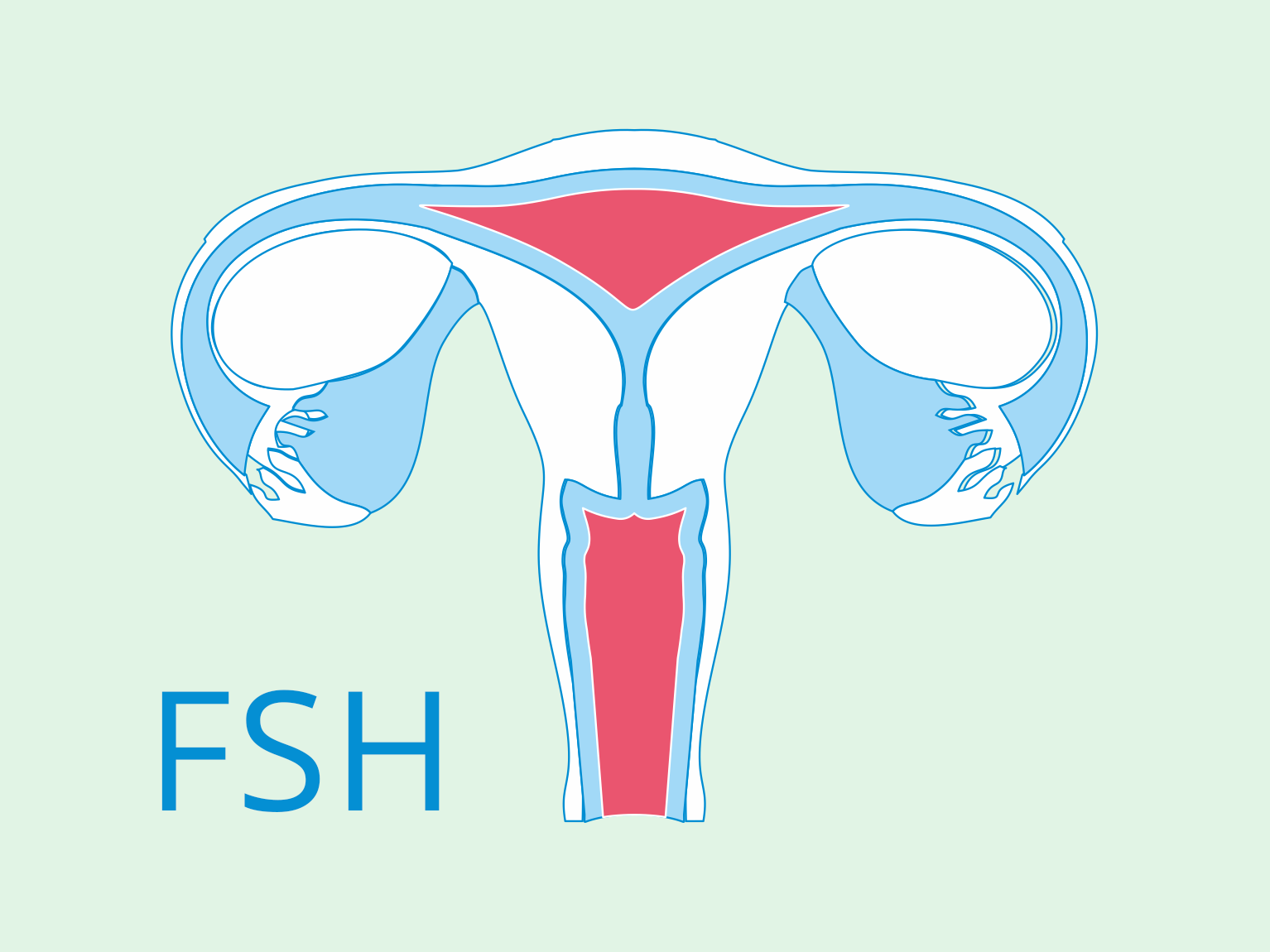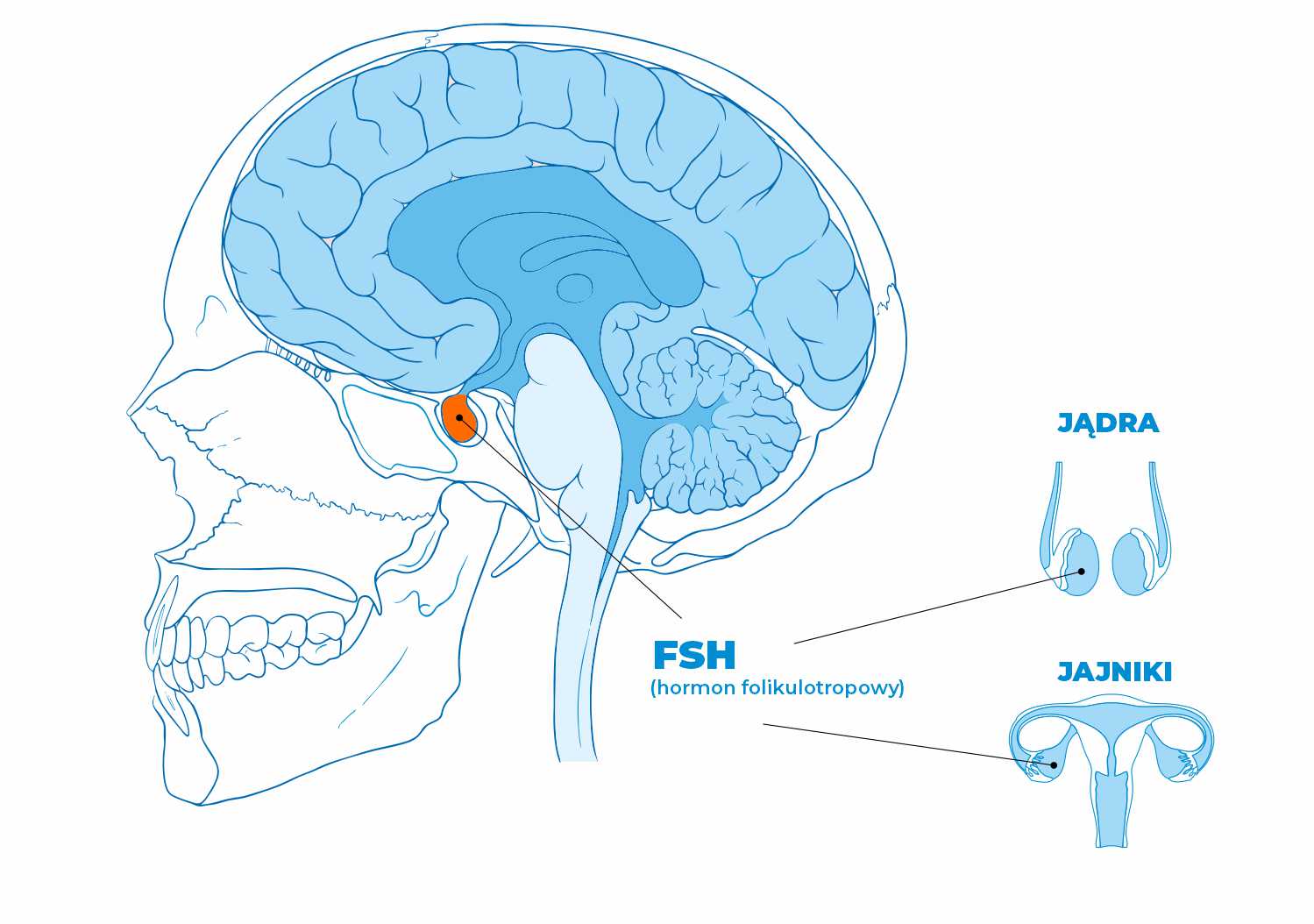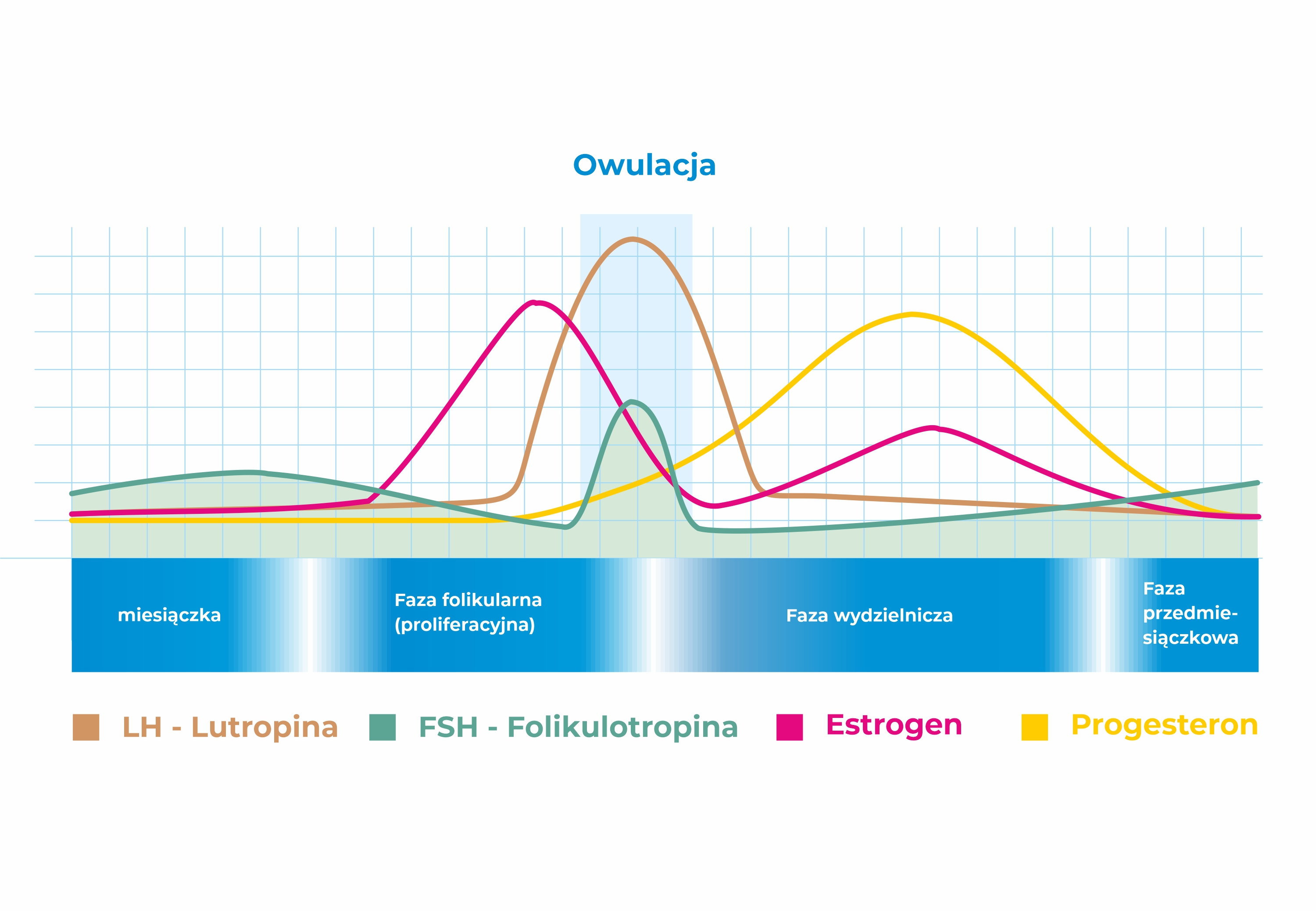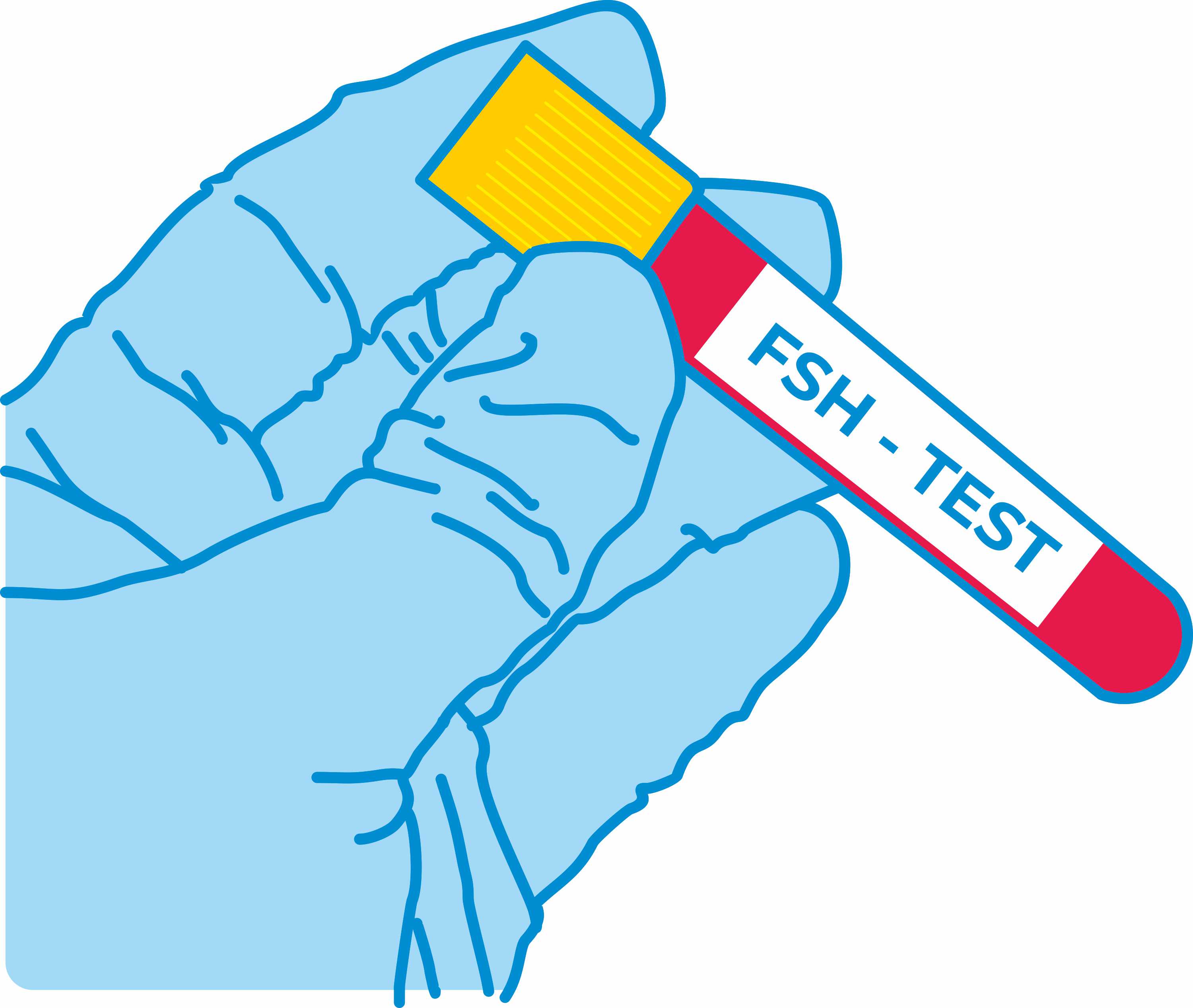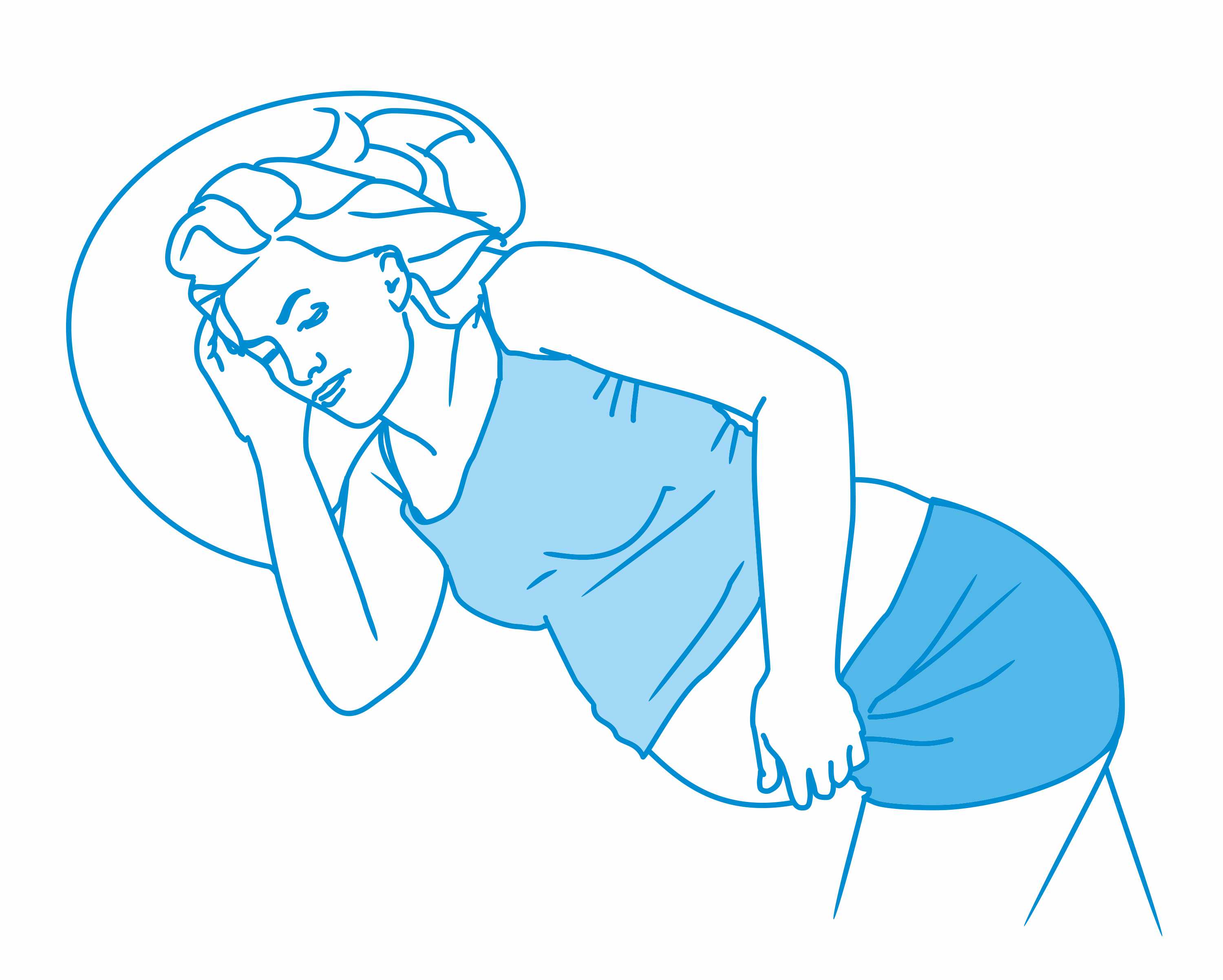What is follicle stimulating hormone (FSH) responsible for?
Follicle stimulating hormone (FSH) is responsible for the synthesis of sex hormones. The role of follicle stimulating hormone (FSH) is to regulate the menstrual cycle and spermatogenesis. The production of follicle-stimulating hormone (FSH) is based on feedback with estradiol (E2).
What are the effects of deficiency or low follicle stimulating hormone (FSH) levels?
The primary effect of follicle stimulating hormone (FSH) deficiency or low levels is infertility and impotence. In addition, follicle stimulating hormone (FSH) deficiency affects menstrual disorders. Low levels of follicle stimulating hormone (FSH) can lead to delayed puberty.
What are the effects of excess or high follicle stimulating hormone (FSH) levels?
The primary effect of excess or high levels of follicle stimulating hormone (FSH) is premature puberty. In addition, excess follicle stimulating hormone (FSH) can cause weight loss.
How to increase the secretion of follicle stimulating hormone (FSH)?
The secretion of follicle stimulating hormone (FSH) can be increased by administering pharmacological agents based on the recommendations of a specialist doctor. Incorrect blood levels require endocrinological consultation.
How to reduce the secretion of follicle stimulating hormone (FSH)?
The secretion of follicle stimulating hormone (FSH) can be reduced by administering pharmacological agents based on the recommendations of a specialist doctor. Incorrect blood levels require endocrinological consultation.




